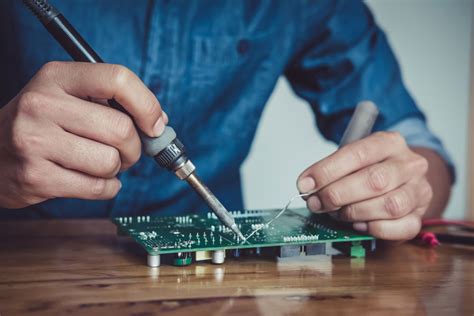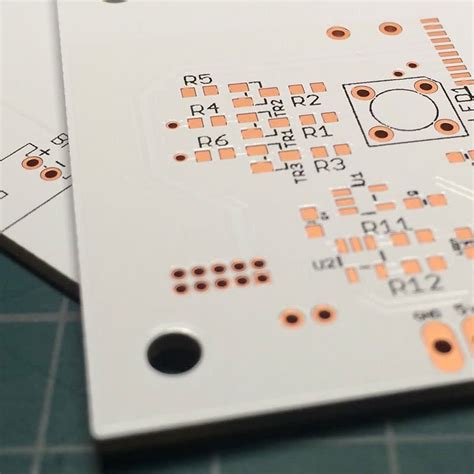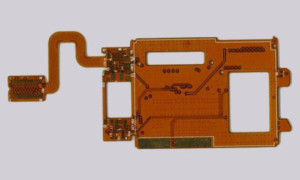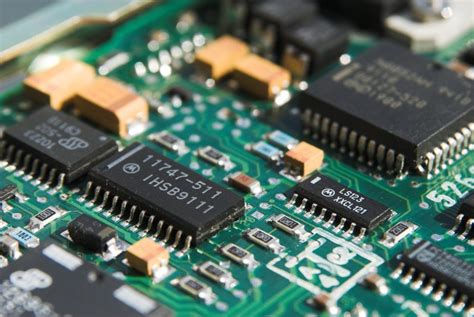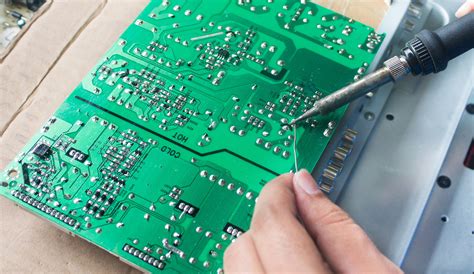Advancements in PCB Manufacturing Techniques and Trends
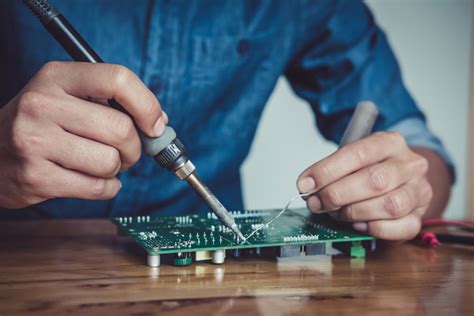
Key Takeaways
In the rapidly evolving field of PCB manufacturing, it’s essential to stay informed about the latest techniques and trends that can transform your business. PCB manufacturing companies are increasingly adopting innovative approaches to streamline production processes, with automation playing a key role in enhancing efficiency and reducing the overall pcb manufacturing cost. By integrating advanced technologies, you can achieve greater precision in your designs while simultaneously minimizing errors. Moreover, using advanced materials has proven to not only improve product quality but also enhance durability. Understanding these advancements will empower you to make informed decisions for your pcb manufacturing business, positioning it for future success. For more insights into these innovations and how they can benefit your operations, consider exploring more resources from reputable manufacturers like Andwin PCB.
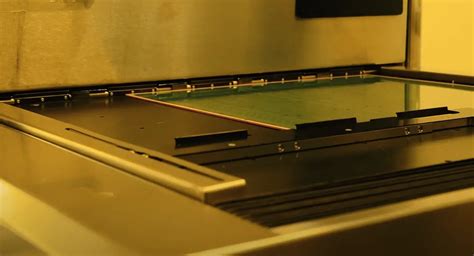
Introduction to PCB Manufacturing: A Brief Overview
In today’s evolving technological landscape, PCB manufacturing serves as the backbone for countless electronic devices. As you delve into the realm of PCBs (Printed Circuit Boards), it becomes evident that their production involves intricate processes designed to ensure reliability and performance. The market for pcb manufacturing companies is expanding rapidly, leading to innovations that focus on improving efficiency and reducing overall costs. Understanding the pcb manufacturing cost is crucial for businesses aiming to optimize their budgets while maintaining quality. The competition among pcb manufacturing businesses has spurred advancements such as the adoption of automation technologies and better materials that enhance the robustness of PCBs. As you explore this dynamic field, consider how these changes influence not only product design but also your purchasing decisions.
"Staying informed about industry trends helps you make better investments in PCB technology."
This insight reflects the importance of being proactive in understanding how PCB manufacturing techniques evolve, ultimately enabling you to remain competitive in a market that demands constant innovation.
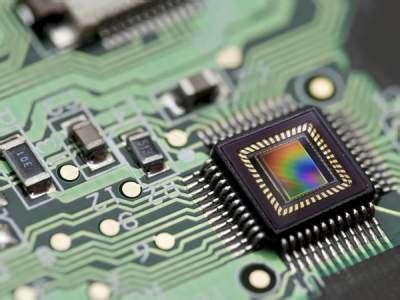
Innovative Techniques in PCB Production
In the dynamic landscape of pcb manufacturing, companies are increasingly adopting innovative techniques that streamline production processes and foster higher efficiency. One significant advancement is the integration of flexible PCB technology, which allows for more complex circuit designs in compact spaces. This is crucial for the ever-evolving needs of electronics, particularly in sectors like consumer electronics, medical devices, and automotive sectors. Moreover, advancements in 3D printing for pcb manufacturing enable rapid prototyping and reduced lead times, which not only drives down the pcb manufacturing cost but also accelerates time-to-market for new products.
Another notable trend is the use of advanced software solutions, such as computer-aided design (CAD) and simulation tools that enhance design accuracy. These tools assist pcb manufacturing companies in optimizing layouts and identifying potential issues before physical production begins, significantly reducing waste and time spent on revisions. Additionally, processes like laser fabrication contribute to precision in circuit etching, leading to improved product quality.
Below is a table summarizing some of these innovative techniques along with their impacts on cost and efficiency:
| Technique | Impact on Manufacturing Cost | Impact on Efficiency |
|---|---|---|
| Flexible PCB Technology | Decreases due to reduced materials needed | Enhances adaptability in designs |
| 3D Printing | Lowers costs for prototypes | Speeds up design iterations |
| Advanced Software Solutions | Minimizes errors, reducing rework | Increases production speed |
| Laser Fabrication | Reduces material waste | Improves accuracy |
By leveraging these innovative techniques, you can ensure that your pcb manufacturing business remains competitive and meets the demands of an increasingly complex electronics market. Adopting these methods not only enhances operational capabilities but also positions you as a forward-thinking leader within the industry.

Trends Shaping the Future of PCB Manufacturing
As the landscape of PCB manufacturing continues to evolve, you will notice several trends that are significantly influencing the industry. One major trend driving transformation is the integration of smart technologies. With the advent of the Internet of Things (IoT) and smart manufacturing practices, PCB manufacturing companies are increasingly focusing on automation and real-time data analytics to enhance production efficiency. This shift not only streamlines operations but also minimizes human error, which ultimately contributes to lower pcb manufacturing costs. Furthermore, you may observe a growing emphasis on customizable solutions where customer specifications lead to more tailored products. This adaptability is essential in a competitive market where companies seek to differentiate themselves while meeting diverse client needs.
Another notable trend is the exploration of sustainable practices. As environmental awareness rises, many pcb manufacturing businesses are adopting eco-friendly materials and processes to reduce waste and energy consumption. This shift towards sustainability doesn’t merely meet regulatory requirements; it also appeals to customers who prioritize environmentally responsible production methods. Overall, these trends reflect a dynamic PCB manufacturing landscape that promises improved efficiency and sustainability, as well as a stronger alignment with market demands. Adapting to these trends could position your business at the forefront of industry advancements and enhance your competitive edge in this rapidly changing field.
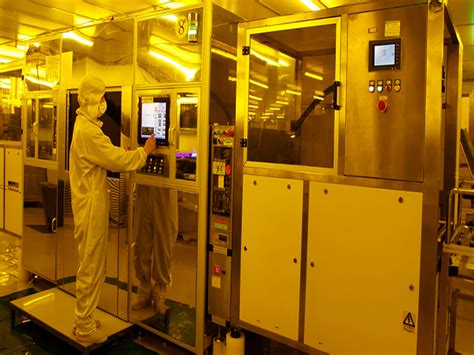
The Role of Automation in PCB Efficiency
In today’s fast-paced PCB manufacturing environment, embracing automation is essential for enhancing operational efficiency and competitiveness. By integrating advanced automated systems, you can significantly streamline your PCB manufacturing business processes. This not only reduces the PCB manufacturing cost, but also minimizes human error, leading to higher product consistency and quality. The implementation of robotics in assembly lines allows PCB manufacturing companies to achieve quicker production cycles while maintaining precision. Additionally, automation facilitates real-time monitoring and data collection, enabling you to optimize workflows and better respond to demand fluctuations. As you explore automation solutions in your PCB manufacturing efforts, consider the long-term benefits they bring, such as increased scalability and adaptability in a rapidly evolving industry. By focusing on these aspects, your enterprise can leverage the latest technological advancements to stay ahead of your competition and meet customer expectations effectively.
Cost Reduction Strategies in PCB Production
In the competitive landscape of PCB manufacturing, companies are continually seeking efficient methods to reduce costs without compromising quality. One effective strategy you can adopt is optimizing the design phase through advanced software tools that facilitate better layout planning and component placement. By streamlining these processes, PCB manufacturing companies can minimize waste and enhance production speeds. Additionally, adopting modular designs can significantly lower PCB manufacturing costs, allowing for greater scalability and flexibility in production. Leveraging automation in assembly lines not only increases efficiency but also decreases labor costs, which is crucial for maintaining a profitable PCB manufacturing business. Moreover, sourcing materials in bulk and establishing long-term relationships with suppliers can lead to substantial savings on raw materials, further driving down costs. By integrating these strategies, you position your business to thrive amidst rising demands and fluctuating market conditions, ultimately enhancing your competitive edge in the PCB manufacturing sector.

Enhancing Product Quality through Advanced Materials
In the realm of PCB manufacturing, the choice of materials is crucial for achieving high product quality and reliability. Recent innovations in materials science have led to the introduction of advanced substrates that not only meet but exceed traditional specifications. For instance, materials that offer superior thermal conductivity or enhanced dielectric properties are becoming more prevalent in the offerings of PCB manufacturing companies. This shift is aimed at addressing the growing demands for high-performance electronics, especially in sectors like telecommunications and automotive.
Utilizing these advanced materials can significantly impact your PCB manufacturing business, directly influencing both performance and longevity of your products. Furthermore, advancements such as high-frequency laminates and flexible materials are reshaping designs, allowing for more complex circuits while maintaining durability. While these premium materials can initially elevate your pcb manufacturing cost, they tend to reduce long-term failure rates and increase overall customer satisfaction. Thus, investing in quality materials not only assures you improved product performance but can also enhance your reputation among clients looking for reliability in printed circuit boards. As you explore these options, consider how integrating advanced materials can contribute to setting your offerings apart in a competitive market and drive future growth for your business.
Environmental Considerations in Modern PCB Manufacturing
In recent years, the pcb manufacturing sector has seen a rising emphasis on environmental sustainability, prompting many pcb manufacturing companies to adopt greener practices. This shift not only addresses regulatory pressures but also responds to growing consumer demand for eco-friendly products. By integrating sustainable materials and processes, these pcb manufacturing companies are significantly reducing their carbon footprints. Innovations such as lead-free soldering, the use of recycled materials, and waste minimization techniques are now becoming standard. Additionally, there’s a focus on optimizing energy consumption during production, which not only lowers the pcb manufacturing cost but also enhances operational efficiency. As you explore options for your own pcb manufacturing business, consider how adopting environmentally responsible practices can not only align with global standards but can also appeal to an increasingly conscientious customer base. Implementing such changes may require initial investments, but the long-term benefits of reduced waste and improved compliance can lead to greater profitability and enhanced brand reputation in the competitive landscape of pcb manufacturing.
Future Directions: Emerging Technologies in PCB Industry
As you delve into the future directions of PCB manufacturing, it becomes evident that the integration of cutting-edge technologies is poised to revolutionize the industry. The rise of smart manufacturing techniques, particularly in PCB manufacturing companies, is paving the way for enhanced efficiency and reduced manufacturing costs. Advanced systems utilizing artificial intelligence and machine learning, for instance, can predict equipment failures and minimize downtime, ensuring that your PCB manufacturing business operates smoothly. Furthermore, the adoption of additive manufacturing methods allows for intricate designs that were previously difficult to achieve, leading to smarter circuit layouts and more compact products. With your focus on advanced materials, innovations such as flexible PCBs are gaining traction, providing greater functionality while reducing overall weight. Additionally, as sustainability becomes a priority globally, embracing eco-friendly materials and processes will not only appeal to environmentally conscious consumers but also aid in meeting regulatory standards. In this rapidly evolving landscape, staying informed about these emerging technologies will be crucial for maintaining a competitive edge in the ever-demanding PCB manufacturing sector.
Conclusion
As the landscape of PCB manufacturing continues to evolve, it’s crucial to stay informed about the latest trends and innovations reshaping the industry. With advancements in technology, many PCB manufacturing companies are exploring new methods that not only streamline processes but also enhance overall efficiency. You may notice that these innovations contribute to considerable reductions in pcb manufacturing cost, providing companies with a competitive edge. Emphasizing environmental sustainability has also become a priority, as modern methods often incorporate greener practices that resonate well with consumers and businesses alike. Ultimately, understanding these advancements positions you to make informed decisions within the pcb manufacturing business, maximizing both productivity and quality while remaining ahead of industry trends. By leveraging cutting-edge techniques and adapting to emerging technologies, your organization can significantly enhance its offerings within the PCB industry, leading to successful outcomes for both your customers and stakeholders.
FAQs
What is pcb manufacturing?
PCB manufacturing refers to the process of creating printed circuit boards that connect various electronic components. This process combines design, materials, chemicals, and machinery to produce high-quality, functional boards.
What are common techniques used by pcb manufacturing companies?
Common techniques include screen printing, photo engraving, and laser drilling, all of which enhance precision and allow for the production of complex designs.
How can I assess pcb manufacturing cost?
To assess pcb manufacturing cost, consider factors such as material selection, design complexity, volume of production, and potential for automation which can significantly reduce expenses.
What should I look for in a pcb manufacturing business?
Look for a pcb manufacturing business that offers high-quality materials, advanced technology, quick turnaround times, and strong customer support. Reputation and reviews can also provide insights into their reliability.
Are there environmental considerations in pcb manufacturing?
Yes, many current practices in pcb manufacturing aim to reduce environmental impact through the choice of eco-friendly materials and responsible waste management systems.
For further information on advancements in this field and to explore your options in pcb manufacturing, please click here: https://www.andwinpcb.com/pcb-manufacturing/

